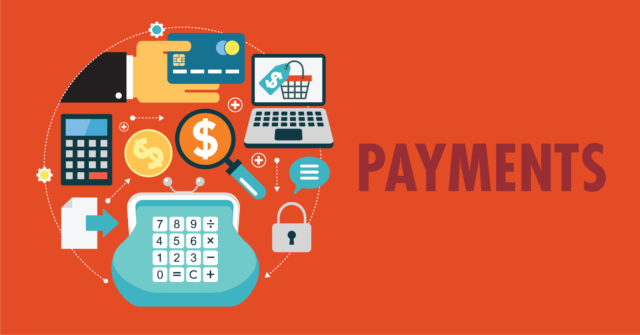
What is the best way of payment for small businesses? Some people believe that cash is king, while others believe that credit cards are the way to go. However, in the wake of the coronavirus, small company owners may have been forced to abandon their favored payment method in favor of online transactions.
However, the ideal small company payment option will ultimately be determined by a number of factors. Consider the size of your transactions, who will be managing the money, and your accounting system before deciding the appropriate channel.
Let’s look at some of the payment alternatives and payment processing technologies that might be appropriate for your business.
1. Payments in cash

Consumers use banknotes and coins to make monetary payments. A point-of-sale system is typically used to manage cash payments. Cash had been the primary mode of payment until recently, but digital payment options have progressively grown in popularity.
Receiving payment quickly rather than waiting for a transaction to clear is one of the advantages of accepting cash payments. Because there are no fees connected with collecting cash from clients, cash payments also reduce overhead costs. Credit card fees can be pricey for small firms with thin profit margins.
Some small firms may find that operating a cash-only business helps them improve their bottom lines and streamline their obligations. However, it’s crucial to keep in mind that this method of payment has some disadvantages. With a cash-only firm, you may be more vulnerable to theft and money mismanagement. You may potentially lose revenue if you inconvenience clients who only have a credit card.
If cash is your primary payment method, regardless of your sector, careful accounting can help you avoid an audit.
2. Credit Card

A credit card is a rectangular piece of plastic that indicates a line of credit that the bearer of the card has committed to receive from a bank. In exchange, the cardholder has agreed to repayment terms, including any interest that may be charged. Businesses that accept credit card payments must have a POS (Point of Sale) system in place to execute such transactions. Hardware costs and upkeep can be a deterrent to making this a viable payment option.
Credit cards are susceptible to credit limitations and often to high annual percentages so that they can quickly turn into blocked payments and additional costs with your financial institution, although payments made with a credit card simplify the date, amounts, and receipts for tracking.
In addition, interchange fees and monthly processing costs may apply to credentials. A mark-up may be included to make up for these fees. The most often used and accepted credit card companies are Visa, Mastercard, and American Express.
3. Payments Made With Checks

A check is a piece of paper with features that identify the payer and payee and is used to initiate a financial institution transfer of monies. Date, payee name, amount of check (both numeric and written out), and validation signatures are all included on all checks. A “memo” line on checks is frequently used to write a PO or reference number.
Checks with advanced security features like holograms, watermarks, or a security coating can’t be cashed by just anyone. Checks also leave a paper trail, and with the introduction of internet banking, payees may be able to view scanned copies of checks they’ve paid in their bank accounts. Unfortunately, not everyone will accept a check because they take time to clear, especially for payments that are already late or will be due shortly.
Accepting checks made in exact amounts and issued by central banks in your state is standard procedure. A third-party company can assist in the verification of each check’s authenticity. If a check bounces, you may have to go to a small claims court or hire a collection agency to get your money back. Both outcomes might be costly and with no certainty of payback.
Generating estimates is a hefty task. Making your customers understand the price point sometimes can be really tiring. Check this out to know how you can create estimates and ask for your payments without any discrepancies.
4. Online Payments

Electronic payments are made using the internet. They employ a payment gateway to process and authorize eChecks, credit cards, and direct debit payments.
Online payments aren’t just for online merchants. Digital wallets or apps that save credit and debit card information on a mobile device can be used to make online transactions in physical stores.
In terms of cost and convenience, online payments appear to be the way of the future. They provide a less expensive and speedier method of payment, as well as options for customers when they check out.
When selling with cash or a credit card, you must add up the total price, including taxes. The best online payment methods, on the other hand, handle this for you automatically, saving you time and lowering the danger of error. To accept payments online, you’ll have to pay a charge. However, these fees are usually less expensive than those imposed by credit card issuers.
A virtual shopping cart is frequently used by e-commerce online payment systems to determine the total with delivery fees. That’s on top of gathering the customer’s shipping and payment details. Small businesses can get free shopping cart services from a number of companies. To offer products or services online, you’ll need this sort of payment.
However, because of their convenience and cost, they are also becoming more popular with brick-and-mortar shops. Contactless payments, which use near-field communications to permit in-person payments, can be enabled through digital wallets, as well as smart debit and credit cards.
In Conclusion
Online payments are a new technology that can help you attract more consumers, save money, and streamline your accounting processes. However, it’s a good idea to compare the top online payment methods for small businesses to find the greatest fit for your requirements.
The credit card processing market is dominated by a few significant players. However, there are a variety of companies that may assist your business with online payment processing, and they are all structured differently.












